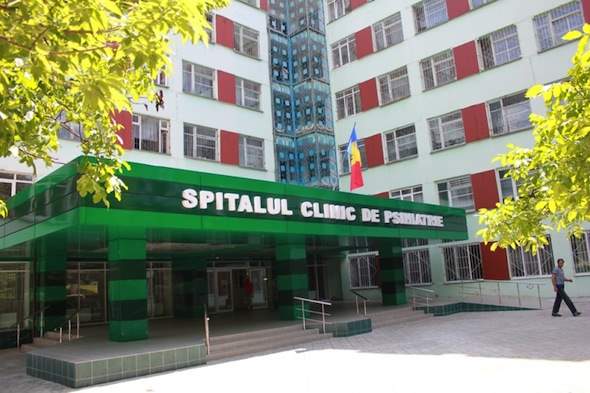I began to develop an interest in human behavior during middle school when I started studying the basic functions of the nervous system. The biology class teacher noticed this interest and gave me a book that introduced me to human brain studies. From then on it has grown into a passion. The more I read about the human brain, the more I wanted to learn about how it actually works. Eventually, I knew that I wanted to pursue a career related to human psychology and behavior. At the end of high school, I’ve had my heart set on becoming a doctor and treating people.
 (1)
(1)
Throughout medical school, I found myself being most interested in the field of neuroscience. Early in my clinical clerkships, I realized that I really liked listening to people's stories and began to notice that many patients wanted to talk to me about stress-related complaints. During my rotations, I encountered patients with hypertension, peptic ulcer, coronary artery disease, and other conditions. I noticed, however, that the same patients were noting stress as one of the major factors that contributed to their health status. When I finally entered my psychiatry rotations, I knew I wanted to pursue this specialty.
Upon graduation from medical school, I started a psychiatry residency in Moldova in one of the largest European psychiatric hospitals, which had about 700 inpatient psychiatric beds and a diverse patient population. During my residency, most of the patients I was working with were suffering from various types of schizophrenia, bipolar affective disorders, posttraumatic stress disorders, personality disorders (mainly, antisocial and histrionic types), Alzheimer's disease, major depression, mental retardation, epilepsy with psychotic episodes and the secondary personality change after a head trauma injury.

(2)
Since the second year in my residency program, I started working part-time during night hours in the psychiatric ambulance. In the emergency settings of the ambulance, I saw psychiatric illnesses in their exacerbations, taking place in different settings: at home, at the bus stations, in stores, in the crowds, etc. Catatonic excitations along with raging violence, suicidal people at the edge of the buildings, armed schizophrenics, bipolar disorder sufferers at scientific facilities, and many others. The experienced psychiatrists I’ve worked with have taught me how to think and how to proceed in all of these situations. The knowledge that I received there helped me afterward when I became a doctor in the Admission Department of the Psychiatric Clinical Hospital of Chisinau.
After three years of working days in the department of epilepsy disorders with personality changes and nights in the admission department, I was assigned to work as a secretary of the Mortality Review Council. That provided me with a tremendous amount of experience. I was responsible for handling medical records of the deceased patients; arranging the pathologist, psychiatric experts and the internal medicine doctors meetings in regards to each case. All discussions and conclusions of the meetings were documented by me and analyzed afterward, with presentations made for all of the hospital’s practitioners. The common causes of death in the PCH were: heart attacks, strokes and severe infectious diseases. Each case was thoroughly analyzed. And in each of these cases, the same question was asked: did the psychiatric treatment have an effect on the death of the patient? That was the time when I learned once again that the antipsychotic drugs can change the clinical picture of the disease.
Find Out How UKEssays.com Can Help You!
Our academic experts are ready and waiting to assist with any writing project you may have. From simple essay plans, through to full dissertations, you can guarantee we have a service perfectly matched to your needs.
View our academic writing services
Working hard almost two full-time jobs in Moldova I was still able to find the time to review the latest Psychiatry news, innovative treatment approaches and discoveries, mostly coming from the US. That was the time when I started my USMLE preparation, hoping to become a Psychiatrist in America one day. Moving to the United States, the country with the most progressive mental health care system in the world seemed like a great idea that soon became a reality. In 2015, I, my wife and our little daughter received the US Lawful Permanent Resident Status documents. To be honest, relocating to a different country and completely changing the lifestyle of my family was not easy. However, somewhere deep inside we felt it was the right thing to do.
Once moved to the US, I continued to prepare for the boards and started working in the South County Mental Health Center of Delray Beach, Florida as a mental health technician. I learned how mental health services are working in the US, seeing the entire process of the patients’ treatment from the admission till the discharge. I admired the treatment plans with 99% of newer atypical antipsychotics, while in Moldova only about 30% of atypical medicines get to be widely used.
After finishing all the board exams for the USMLE, I am trying to enter a psychiatry residency in the US to obtain a license. It is an extremely difficult struggle because for the one residency place in an average program compete about three hundred applicants. Wish me luck!
References:
- Photo from http://newstyle-y.ru/school/objects/mou-sosh8/. Accessed February 12, 2020
- Photo from https://noi.md/md/news_id/94629. Accessed February 12, 2020
Cite This Work
To export a reference to this article please select a referencing style below:


